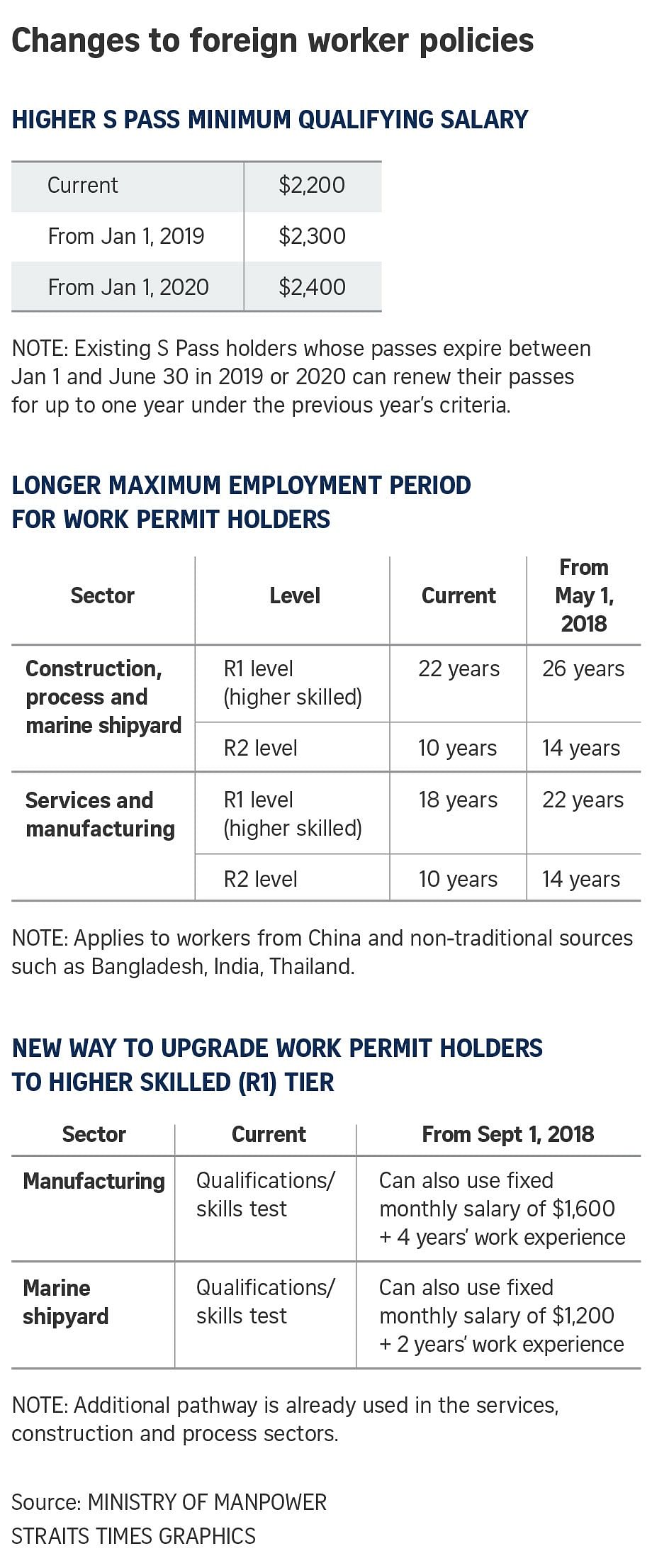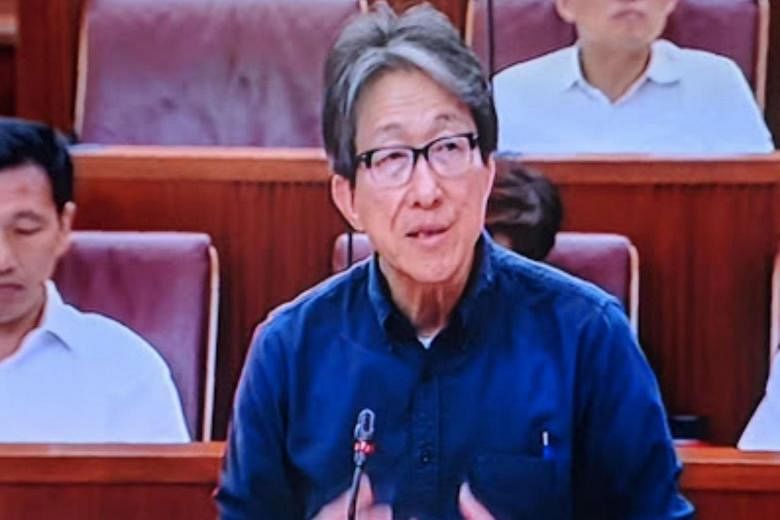SINGAPORE - Rules on the hiring of foreign workers are being tightened, as part of government efforts to ensure that the quality of the workforce and opportunities for Singaporeans improve.
For one thing, more companies will have to give Singaporeans a chance to apply for higher-skilled jobs by advertising these on the national Jobs Bank for at least 14 days before they can hire a foreigner for the role.
Under the Fair Consideration Framework, this rule applied to companies with more than 25 workers and for jobs paying a fixed monthly salary of less than $12,000 a month. From July 1, it will be extended to cover companies with at least 10 workers and for jobs paying less than $15,000 a month, said Manpower Minister Lim Swee Say on Monday (March 5).
This is part of efforts to ensure Singaporeans have access to good jobs, and to raise the quality of foreigners working here, he said.
"With slower manpower growth, we need to maximise the potential of our two-thirds local, one-third foreign (workforce), so that together, we can maximise the potential of our total Singapore workforce," he said, during the debate on his ministry's budget.
Eight MPs, including Mr Patrick Tay (West Coast GRC), Mr Low Thia Khiang (Aljunied GRC) and Nominated MP Thomas Chua, had asked about government efforts to ensure that locals and foreigners here can work together well.
Mr Lim said the Government tightened the criteria for Employment Passes (EPs) in 2014 and 2017, resulting in slower growth in the number of EP holders each year, to an average of 3,000 a year in the past three years, down from a peak of 32,000 in 2011.
This is to calibrate the growth of EP holders, and enhance their overall quality, he said, adding that about 50,000 new EPs were given each year over the past three years. A similar number of passes were not renewed.
Raising the quality of local and foreign workers here is crucial as the growth of the workforce has slowed significantly, so strong productivity growth will be needed to drive economic growth, said Mr Lim.
"Probably one of the most critical challenges is to ensure that slower growth of our Singapore workforce will not become the bottleneck in the future growth of our Singapore economy," he added.

The workforce of about 3.4 million people currently comprises 2.3 million Singaporeans and permanent residents, making up about two-thirds of the workforce, and 1.1 million foreigners.
From 2015 to 2017, compared with the previous three years, net job growth slowed from over 100,000 a year to less than 10,000 a year on average. Retrenchments and the unemployment rate for residents both went up.
Mr Lim noted that local employment growth has improved, but said the average net job growth of less than 10,000 a year in the past three years is "not high enough".
It needs to be around 25,000 to 40,000 a year to provide enough jobs for the workforce of 3.4 million, growing at about 1 per cent per year, he said.
In addition, to compete on the innovation and technology front, more is being done to train locals in "global capabilities", said Mr Lim.
He announced updates on the Capability Transfer Programme, which supports companies which want to tap overseas experts to transfer skills and knowledge to local staff. The scheme provides funding of 30 per cent to 70 per cent of costs, including salaries of expert trainers, living allowance and training equipment for the industry. The funding cap is $300,000 per project.
Projects which benefit the industry as well as small and medium-sized enterprises will receive the higher end of the funding range.
In exceptional cases, where the cost is higher and it is crucial to build up local expertise but there is a lack of local specialists, the ministry will consider funding support of up to 90 per cent and providing beyond $300,000.
In response to Mr Low, who asked how the outcomes of projects will be measured to ensure the money is well spent, Mr Lim said the ministry will consult sector agencies and industry transformation maps when evaluating the outcomes of projects.
Since the pilot run of the scheme was launched late last year, projects in precision engineering and pharmaceutical transportation have been started. For example, foreign specialists from Germany came to Singapore to train local engineers in the use of new high-speed, high-precision machines, and the local trainees are now training others.
The lift maintenance industry is another industry making use of the scheme, Mr Lim noted.
Learning to use predictive data analytics can help technicians to do preventive and predictive maintenance to reduce the probability of lifts failing. Under the programme, overseas specialists will be brought in to introduce "smart lifts", and local trainers will also be sent overseas.
Other changes to foreign worker policies are the raising of the minimum S Pass salary to keep pace with rising wages. From Jan 1 next year, the minimum qualifying salary will be raised to $2,300, up from $2,200. From Jan 1,2020, it will be raised to $2,400.
The last adjustment was in 2013, and there will be a transition period over the next two years to help existing S Pass holders and employers adjust.
To encourage companies to develop their work-permit holders and raise their productivity, the ministry is also extending by four years the maximum period such staff can work in Singapore, with effect from May 1 this year. This applies to workers from certain countries, such as China, Bangladesh, India and Thailand.
Mr Lim added that there will be no further tightening of the number of work-permit holders for now.


